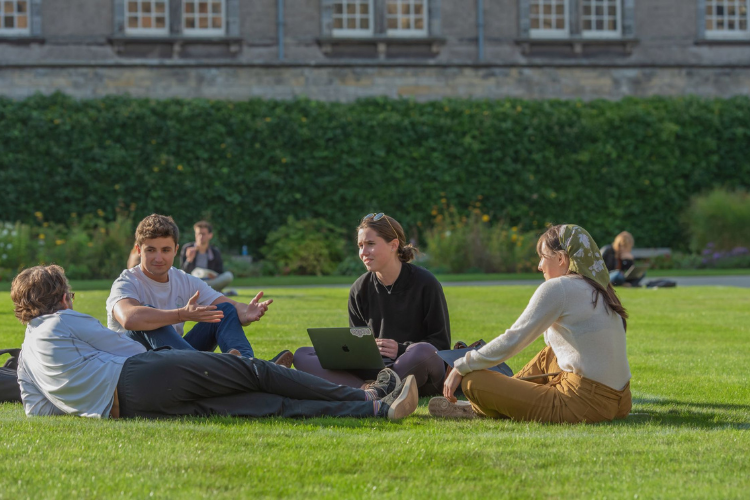Covid Update March 2022
Principal and Vice-Chancellor, Professor Sally Mapstone FRSE, wrote to all staff and students Thursday 17 March 2022 with an update on the University’s response to changing Covid guidelines and plans for the next academic year.

Dear Colleagues and Students,
The war in Ukraine continues to be in all our thoughts, and I will write to you separately about our actions and plans in relation to that. This update concentrates on Covid-19 and our plans for the remainder of this academic year and the next.
The First Minister has this week confirmed that Scotland will lift most of its remaining Covid restrictions from 21 March, and hopes to end the requirement to wear masks in indoor public spaces from 4 April.
From these dates, we will no longer be subject to law in the way we respond personally and institutionally to the mitigation of Covid risks.
Guidance on testing will also change. From 18 April, students and staff in Scottish universities will no longer be advised to test regularly for Covid if asymptomatic.
This is an important moment for Scotland, and for this University. While it heralds a definitive move away from the acute phases of the pandemic, Covid will remain a significant public health challenge across the world for the foreseeable future.
Levels of infection in Scotland are presently high, but because of vaccines and a comparatively milder variant, this is not translating into large numbers of people with serious illness, and the Scottish Government has said it is confident that the national picture will improve over the Spring.
In St Andrews, we must now decide how we will respond individually and collectively to the restoration of old freedoms, in the context of a lingering challenge to public and personal health.
Feedback from our student and staff communities strongly indicates a preference for policies which continue to promote tolerance and respect for each other, and each other’s health.
For this reason, for the remainder of this semester at least, the University will be advising that face-coverings should continue to be worn indoors after 4 April, and that you should continue to test, and self-isolate if you have Covid symptoms, or test positive. LFD test kits will continue to be available in Walter Bower House, the Sports Centre, Students’ Association, Library, and ASC, and from the front desks of most halls of residence.
Masks can help prevent the spread of infection. They lessen the risk we as individuals pose to each other, and especially to those in our community who are more vulnerable to coronavirus.
By following this advice, you will be demonstrating your respect for fellow students and staff. My Principal’s Office colleagues and I strongly commend it to you all.
Academic year 2022/2023
We will monitor the local impact of the lifting of legal restrictions over the remainder of this semester, but our clear aim for next academic year is that St Andrews should be able to return to large-scale in-person activities, including lectures, without restrictions.
I have pointedly not said “return to normal”, because some good things have emerged from the ways in which we were forced to teach, study, and work during the pandemic, and we want to ensure these can continue.
Our delivery of in-person classes in 2022/23, and our research, will be enhanced by the new digital skills, methodologies, and resources that we have acquired.
Digital teaching techniques that have proved capable of delivering better outcomes for staff and students will continue to be used and supported (e.g. flipped classrooms). We will continue to develop the University’s digital infrastructure and provide training and support for staff to support innovation in research, teaching and learning.
The Vice-Principal Education will set out our plans for teaching next academic year in more detail before the end of semester.
All of this, of course, assumes the continued amelioration of Covid by vaccines and improving therapies, and that we are resilient enough to cope with the inevitable emergence of new variants from time to time.
Scotland’s universities, especially this one, can be really proud of their response to the pandemic.
The higher education sector has been subject to a level of restriction and interference out of proportion to the evidence of risk, and our students, and many staff, have been expected to bear a heavy burden demonstrably not applied to other sectors of society.
Let us hope that this is the corner we have all long hoped to turn, and that the future is one in which our universities are again free to be engines of innovation and change, and to exemplify the best of Scotland on a global stage.
Professor Sally Mapstone FRSE
Principal and Vice-Chancellor
Email to all staff and students from University Principal and Vice-Chancellor, Professor Sally Mapstone FRSE, on Thursday 17 March 2022.
Posted by the University of St Andrews Communications Office.